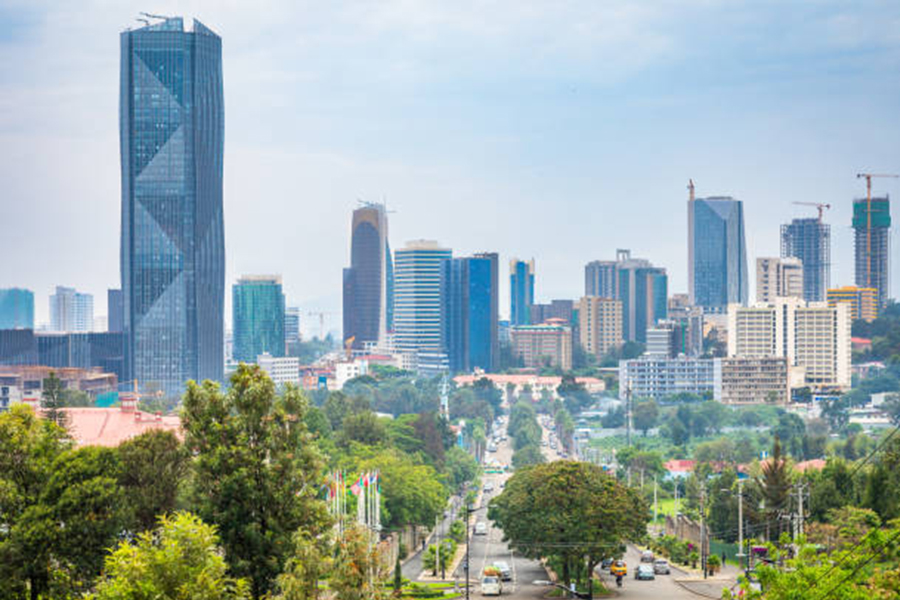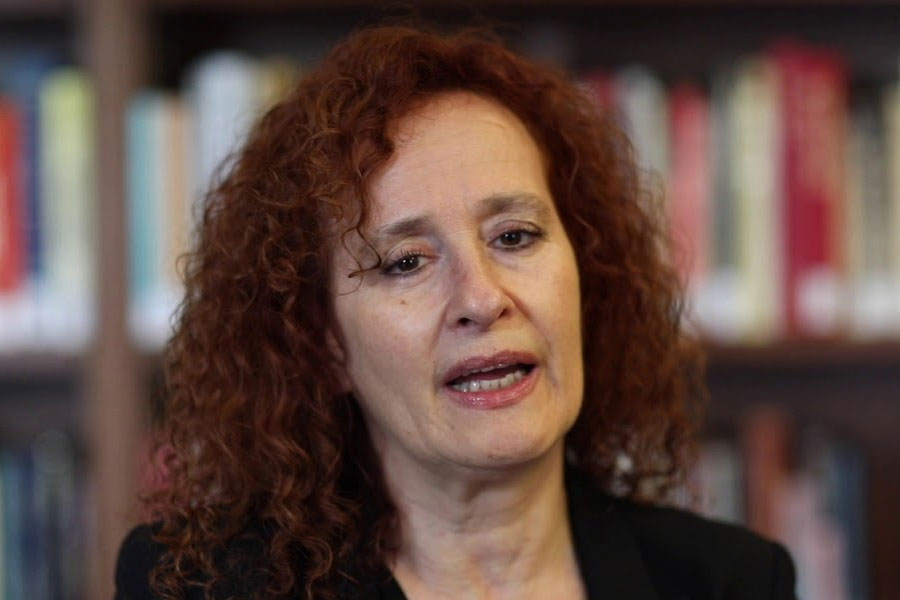
A major initiative by the Addis Abeba City Administration targeting food inflation and improving accessibility to agricultural products is gaining momentum. Establishing three vast agricultural market centres, built at the cost of 6.8 billion Br, is at the heart of this strategy. These centres sprawl across nine hectares, designed to serve as hubs for essential goods offering products at a 20pc discount in hopes of tackling the persistent issue of rising food prices.
The bids to allocate these shop spaces within these centres attracted 600 offers, resulting in 57 wholesalers and 143 retailers winning bids. The winners, set to operate under annual rental agreements, will occupy shops varying in size from 25Sqm to 83Sqm, with rental rates for a square metre ranging between 327 Br and 367 Br. Despite receiving bids as high as 40,000 Br for a square metre, the city administration opted for more moderate pricing to keep the commodities affordable, disclosed Deberie Deresa, the Bureau's head of the market centre administration.
"We're trying to cut the intermediaries off," Deberie said, pointing to the broader aim of streamlining the agricultural supply chain to benefit producers and consumers.
Bereket Worku, a commercial farmer popular on social media platforms like TikTok where she has half a million following, expressed excitement about the opportunity, appreciating the cost savings compared to dealing with intermediaries.
"I wish I were a broker sometimes," she told Fortune, viewing their role as more of a burden for her farms in Oromia, Afar and Southern regional states.
Known as "Bereket Geberewa", she is excited over the prospects of selling horticultural products through the market centres after winning bids in all three of the places.
However, the enthusiasm is not shared among all the beneficiaries.
Eastern Agromart Share Company, a relatively new entrant formed by 102 farmers in Modjo town who raised 22 million Br equity, have concerns about the challenges faced during a trial period over the past five months, particularly about the impact of a 15pc Value Added Tax (VAT) on sales. The company secured a spot in Kolfe Qeranio District, after renting a square metre for 300 Br. It plans to sell 11 commodities, mainly cereals, through the shop as it looks to grow its market share as a recent entrant.
"We hope the new shop will be better," said Mengstu Desta, general manager.
Ciyt officials say the initiative is beyond providing space for sellers.
"We've laid out plans to closely monitor market dynamics," said Sewnet Ayele, communications director of the city's Trade Bureau, disclosing plans to conduct thrice-weekly market surveys to ensure the vendors adhere to the mandated discount rates. "Our goal is to make it affordable to all."
The operational model of the market centres is another area of interest, with the city administration planning to outsource their management to the private sector. Mesfin Assefa, deputy head of the Trade Bureau, believes the approach will enhance efficiency and ensure the centres run effectively. During an orientation session at the Bureau's main offices, Mesfin provided insights into the expected workings of these centres, stressing the importance of maintaining an uninterrupted supply of affordable agricultural commodities.
The success of these market centres in addressing food supply and inflation in urban areas is subject to scrutiny, however. While the initiative represents a significant step towards modernising the agricultural supply chain and making food more accessible, experts caution about the complications. Agricultural economist Assefa Tilahun (PhD) pointed to the difficulties in ensuring a year-round supply, given the persistent mismatch between production and demand, questioning the long-term viability of such an initiative.
"Although a good initiative, market centres alone cannot bring sustainability," he told Fortune.
The city's efforts to tackle food inflation through these market centres come against the backdrop of broader shortcomings. Addis Abeba and Dire Dewa, being net food buyers, are particularly vulnerable to supply disruptions from regional states. The construction of these centres by Ovid Construction Group and their oversight by the Megaproject Office reflect an ambitious attempt to secure the cities' food supply.
The largest of these centres, located in the Lemi Kura District, covers 3.88hct and houses 150 retail and 30 wholesale shops. The Akaki Qaliti Centre, spanning 1.4hct, connects to 485 farmers and accommodates 70 shops. The Kolfe Market Centre, with its 80 retail and 12 wholesale shops, occupies a 2.3hct space, showcasing the scale of this endeavour.
Farmers like Derara Fetisa, 36, a breadwinner for a family of three relying on his agricultural output, see the market as a preferable option compared to traditional channels, despite limitations.
"Traders offer 15 Br more a kilo," he said.
Growing mainly tomatoes and onions from the four hectares of land harvested every year, he has one million Birr shares in the Company and cites being a shareholder as the only reason he continues to supply them.
PUBLISHED ON
Feb 24,2024 [ VOL
24 , NO
1243]

Fortune News | Jul 28,2024

Fortune News | May 23,2025

Commentaries | Sep 10,2022

Radar | Sep 14,2024

News Analysis | Nov 11,2023

View From Arada | Nov 09,2024

Commentaries | Aug 21,2021

Verbatim | Nov 12,2022

Radar | Mar 02,2024

Fortune News | Oct 13, 2024

Dec 22 , 2024 . By TIZITA SHEWAFERAW
Charged with transforming colossal state-owned enterprises into modern and competitiv...

Aug 18 , 2024 . By AKSAH ITALO
Although predictable Yonas Zerihun's job in the ride-hailing service is not immune to...

Jul 28 , 2024 . By TIZITA SHEWAFERAW
Unhabitual, perhaps too many, Samuel Gebreyohannes, 38, used to occasionally enjoy a couple of beers at breakfast. However, he recently swit...

Jul 13 , 2024 . By AKSAH ITALO
Investors who rely on tractors, trucks, and field vehicles for commuting, transporting commodities, and f...

Jun 28 , 2025
Meseret Damtie, the assertive auditor general, has never been shy about naming names...

Jun 21 , 2025
A well-worn adage says, “Budget is not destiny, but it is direction.” Examining t...

Jun 14 , 2025
Yet again, the Horn of Africa is bracing for trouble. A region already frayed by wars...

Jun 7 , 2025
Few promises shine brighter in Addis Abeba than the pledge of a roof for every family...